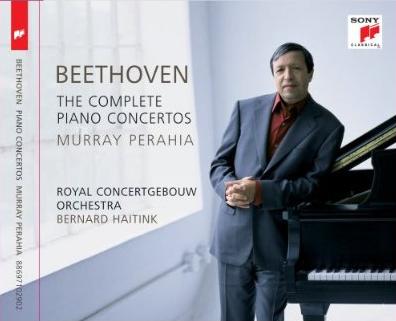Re: What are you listening to?
Posted: Wed Aug 22, 2012 8:37 pm
Currently listening to ....

Operatic Arias Jussi Bjorling in mono...
Orchestra conducted by Nils Grevillius
To Jussi Bjorling belongs the distinction, rare for a Scandinavian artist, of having gained his international reputation entirely in French and Italian opera. Northern lands have long yielded a rich crop of singers particularly suited to Wagnerian roles, but Bjorling's lyrical timbre, warm tone -colour and easy ranging compass won for him a place apart among tenor stylists in opera of a Latin idiom. Eight complete opera recordings in recent years have testified to his exceptional qualities, but his fame first spread far and wide through numerous operatic arias he recorded between 1936 and 1948. It is a selection from these which are now collected and presented in LP form.
Even then, Bjorling was an artist of veteran experience, having first appeared in public at the age of six and made many concert tours as a member of the Bjorling Quartet with his fater, Karl David, and his brothers, Karl Johan Olof (Olle) and Karl Gustaf (Gosta). The Quartet was obliged to break up when Jussi ceased to be their treble star and showed signs of becoming a budding tenor. He was born johan Jonaton Bjorling at Stora Tuna in Sweden on 2nd February 1911. After studying with his father, and later at the Stockholm Conservatoire and Royal Opera School, he made his opera debut in 1930 at the age of 19 singing Don Ottavio in Mozart's Don Giovanni at the Royal Theatre Stockholm.
Jussi Bjorling was a regular member of the Stockholm Royal Opera until 1939. He first appeared at the Metropolitan Opera, New York, in 1938 as Rodolfo in Puccini's La Boheme, and at Convent Garden, London, on 12th May 1939 as Manrico in Verdi's Ll Trovatore. Since 1945 he has remained one of the leading tenors at the Metropolitan Opera, and has been a guest artist at many other opera houses in Europe and America, but his London appearances have regrettably been confined only to concert hall recitals.
EMI Records Limited,
RIP 6th September 1960.


Operatic Arias Jussi Bjorling in mono...
Orchestra conducted by Nils Grevillius
To Jussi Bjorling belongs the distinction, rare for a Scandinavian artist, of having gained his international reputation entirely in French and Italian opera. Northern lands have long yielded a rich crop of singers particularly suited to Wagnerian roles, but Bjorling's lyrical timbre, warm tone -colour and easy ranging compass won for him a place apart among tenor stylists in opera of a Latin idiom. Eight complete opera recordings in recent years have testified to his exceptional qualities, but his fame first spread far and wide through numerous operatic arias he recorded between 1936 and 1948. It is a selection from these which are now collected and presented in LP form.
Even then, Bjorling was an artist of veteran experience, having first appeared in public at the age of six and made many concert tours as a member of the Bjorling Quartet with his fater, Karl David, and his brothers, Karl Johan Olof (Olle) and Karl Gustaf (Gosta). The Quartet was obliged to break up when Jussi ceased to be their treble star and showed signs of becoming a budding tenor. He was born johan Jonaton Bjorling at Stora Tuna in Sweden on 2nd February 1911. After studying with his father, and later at the Stockholm Conservatoire and Royal Opera School, he made his opera debut in 1930 at the age of 19 singing Don Ottavio in Mozart's Don Giovanni at the Royal Theatre Stockholm.
Jussi Bjorling was a regular member of the Stockholm Royal Opera until 1939. He first appeared at the Metropolitan Opera, New York, in 1938 as Rodolfo in Puccini's La Boheme, and at Convent Garden, London, on 12th May 1939 as Manrico in Verdi's Ll Trovatore. Since 1945 he has remained one of the leading tenors at the Metropolitan Opera, and has been a guest artist at many other opera houses in Europe and America, but his London appearances have regrettably been confined only to concert hall recitals.
EMI Records Limited,
RIP 6th September 1960.







